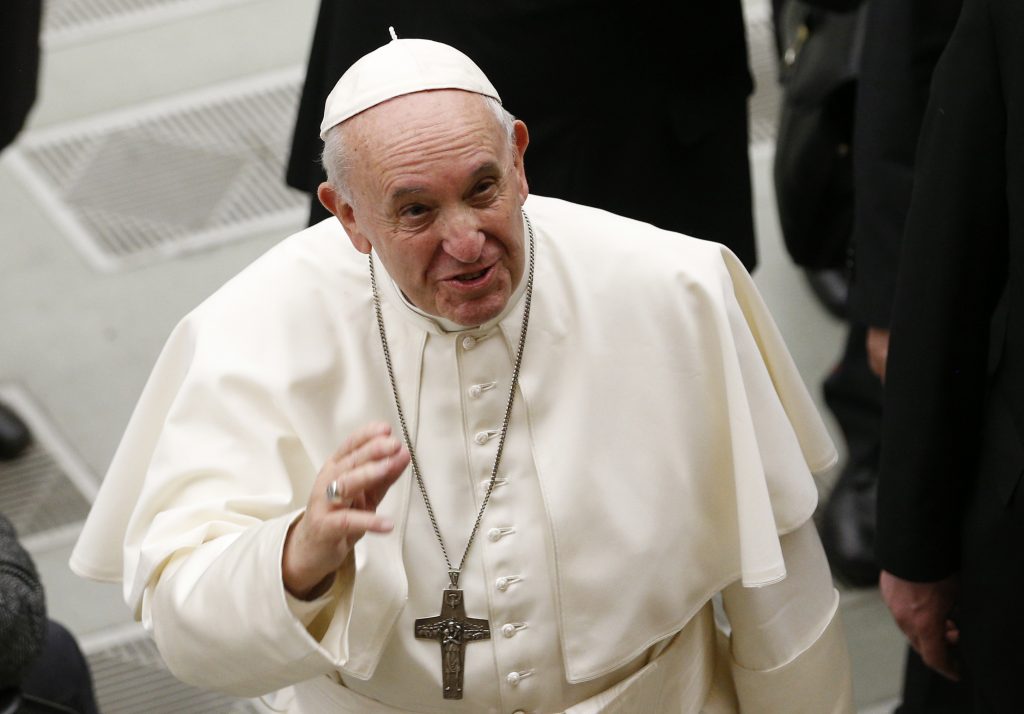Earlier in this month, the Vatican Congregation for Divine Worship and the Discipline of the Sacraments (CDWDS) met to reflect on the topic of “The Liturgical Formation of the People of God.” On February 14, 2019, Pope Francis addressed this group and its topic. The title above is taken from his comments. (All words offered in quotation marks throughout these notes indicate the words of Pope Francis in this specific address.) The pope called upon this group “to deepen and revive our liturgical formation.”
The word “formation,” when used in the context of the church’s liturgy is the process of learning through the liturgy, and involves “the assimilation of the Lord’s way of thinking and behaving. … Liturgical formation cannot be limited to simply offering knowledge — this is a mistake.” So the liturgy is more about formation than information. Liturgy is not so much a lesson to be taught as it is a life to be learned.
In this address to the CDWDS, Francis called for the church, pastors, and laity alike to engage in a practice called “mystagogy,” which, he points out, is “a suitable way to enter the mystery of the liturgy…the living encounter with the crucified and risen Lord. … Mystagogy means discovering the new life we have received…and continually rediscovering the beauty of renewing it.”
The word “mystagogy” comes from a Greek word meaning “guiding into mystery.” It is referred to in the Catechism of the Catholic Church, and is the name given to the fourth stage of the Rite of Christian Initiation of Adults (RCIA). This final period of RCIA catechesis with the newly initiated (those baptized at the Easter Vigil) extends throughout the season of Easter and is intended as a time of spiritual growth encouraged through reflection on the rituals of their initiation and the ongoing mystery of the communion they now share with us, in and through Christ. Liturgist and author Rita Ferrone has a beautiful definition of the term “mystery” as used in the church, and in matters spiritual: “a truth so deep that you cannot see the end of it.” Full, conscious and active participation in the liturgy is such a mystery — a truth so deep the journey never ends.
As the Constitution on the Sacred Liturgy (CSL) from the Second Vatican Council (1963) directed: “Pastors must therefore realize that when the liturgy is celebrated something more is required than the mere observance of the laws governing valid and lawful celebration; it is their duty to ensure that the faithful take part fully aware of what they are doing, actively engaged in the rite, and enriched by its effects.”
The translation of Pope Francis’ address from Libreria Editrice Vaticana was reprinted with permission in the United States Conference of Catholic Bishops Committee on Divine Worship Jan.-Feb. 2019 newsletter. Pope Francis reminded his audience of church leaders that “it is necessary to cultivate the ongoing formation of the clergy and laity, especially those who are involved in the ministries serving the liturgy. Formation not once, but continuing.”
This is the purpose of the Archdiocese of Los Angeles’ Office for Worship, and of all the offices of worship in the dioceses across the country, to assist the pastors in the basic and ongoing formation of the liturgical ministries in their parish, and to help them in ensuring “that the faithful take part fully aware of what they are doing, actively engaged in the rite, and enriched by its effects.”
Liturgical formation, therefore, for the laity and clergy alike, is an organic process. It is not a “one and done deal!” It is an ever-growing and transforming journey. It is a process of clergy and laity together reflecting upon the liturgy in such a way that will enable us to continually rediscover its beauty, and thus, renew our “full, conscious and pious participation” in it.
“The starting point is…to recognize the reality of the sacred liturgy, a living treasure…as irreplaceable nourishment for the organic growth of the People of God.” Pope Francis calls for a working in “harmony” among all the branches of the church leadership, “to serve, in the richness of the various languages and cultures, the prayerful vocation of the Church in the world.”
“We know that it is not enough to change the liturgical books to improve the quality of the liturgy. To do this alone would be a deception. For life to be truly a praise pleasing to God, it is indeed necessary to change the heart.”
May we be given the strength to revive our liturgical formation, that we may be a mystagogical people of praise, truly pleasing to our God.
Start your day with Always Forward, our award-winning e-newsletter. Get this smart, handpicked selection of the day’s top news, analysis, and opinion, delivered to your inbox. Sign up absolutely free today!

